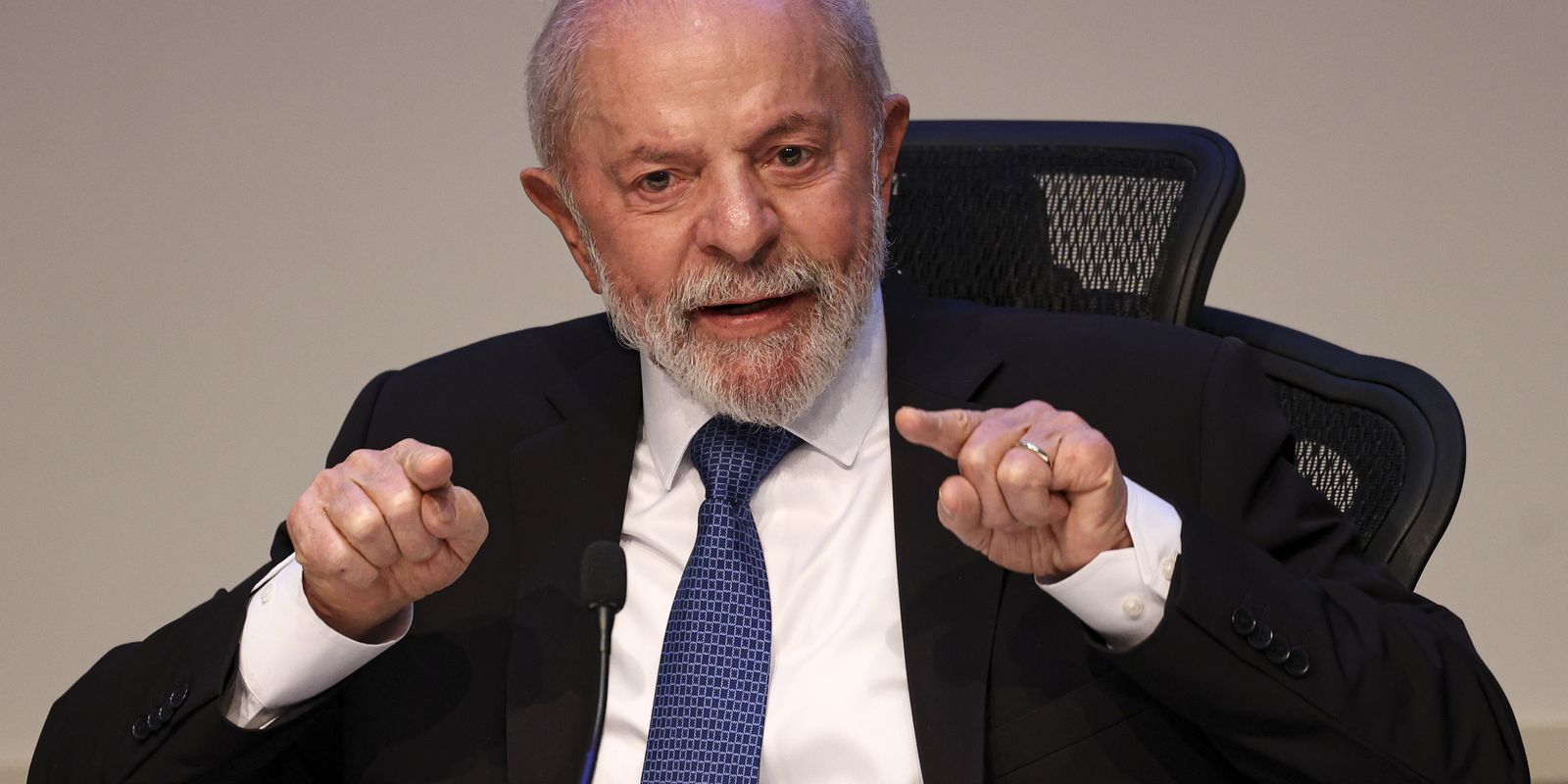President Luiz Inácio Lula da Silva defended, this Wednesday (14), the integration of South American countries for the development of the region and the search for strong commercial partners outside the continent, such as China. Lula stated that Brazil can lead this process, but that it does not want to be imperialist.
“In the same spirit of reducing inequalities within countries, we will take great, very strong care of integration. I am convinced that we have to convince neighboring countries that alone we will not stop being small. Together, we can do a lot,” he said.
“To govern this country, Brazil, you have to present yourself like this, with a lot of wisdom, but at the same time with a lot of humility so that people don’t get suspicious. We don’t want to be imperialists.” […]. It is the construction of a relationship of trust and interest that makes us create the idea of promoting South America as a bloc”, added the president, remembering that he has always defended the improvement of relations in regional blocs such as Union of South American Nations (Unasur) and the Community of Latin American and Caribbean States (CELAC).
At the end of the year, Lula and Chinese President Xi Jinping will hold a bilateral meeting in Brazil to celebrate 50 years of diplomatic relations and, according to Lula, a long-term strategic partnership with the Asian country is under discussion. The president also said he will travel to Peru for this year’s meeting of the Asia-Pacific Economic Cooperation (APEC), where China wants to discuss trade routes with Latin America.
“We want to be a stronger economy than we have ever been and we need to look for partners. Don’t think that when I talk about China I want to fight with the United States, on the contrary, I want the United States on our side as much as I want China. I want to know where we are going to enter, what place I am going to enter, who I am going to dance with? Because Brazil needs to respect itself and it will only respect itself if we have a project”, he said, remembering that, for 15 years, China has been Brazil’s largest trading partner.
The United States and China are locked in a dispute over world markets, while the American superpower finds itself threatened by the Asian country’s rapid economic growth.
Lula participated today in the opening of the forum Um Projeto de Brasil, promoted by the magazine Carta Capital in celebration of the publication’s 30th anniversary. The event brought together, in Brasília, leaders from the public and private sectors to discuss national and South American integration and the paths towards a fair and inclusive energy transition.
“We need deep regional integration, based on skilled labor and the production of science, technology and innovation to generate jobs and income. Those who know the history of the region value the State as a planner and driver of development,” said Lula, arguing that the State should not be maximum or minimum, but rather necessary to reduce asymmetries within and outside countries.
In Brazil, he cited the projects of New Growth Acceleration Program (PAC)guiding policy of the current government, built with suggestions from states and municipalities.
In the foreign market, Lula said that Brazil is strengthening ties with Argentina, Paraguay, Bolivia, Chile, Peru, Ecuador, Venezuela, Guyana and Suriname and cited the project of the five physical integration routes Brazil with neighboring countries. The first is expected to begin operating in 2025 and will connect the entire North Region and part of the Northeast to the triple border with Colombia, Peru and Ecuador.
Mino Letter
In his speech, Lula also spoke about his relationship with Mino Carta, founder of Carta Capitaland praised the journalist’s work. “Mino Carta is, without a doubt, the most important living journalist in this country. He is possibly the most creative journalist this country has ever had,” he said, citing the journalist’s many works.
For the president, society is living in an “era of the end of argument” and, in this sense, he highlighted the importance of good journalism. “What we need in the country is something serious in the media, something that we believe in, something that does not have an ideological bias, something that allows us to know ‘well, I don’t agree with this, but it’s true’,” he said.
“Unfortunately, we need a lot of accurate information, because I have been telling people that we are living in an era where arguments are no longer valid. In other words, arguments are worthless. What counts are coded words, insults, and provocations. In other words, the shorter the provocation, the fewer words, the better. So, people who have prepared so much for arguments no longer have a chance because no one wants to know about arguments anymore,” he added.


















